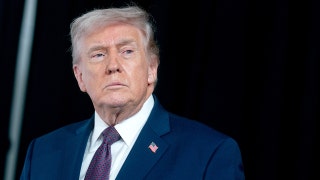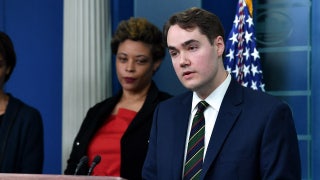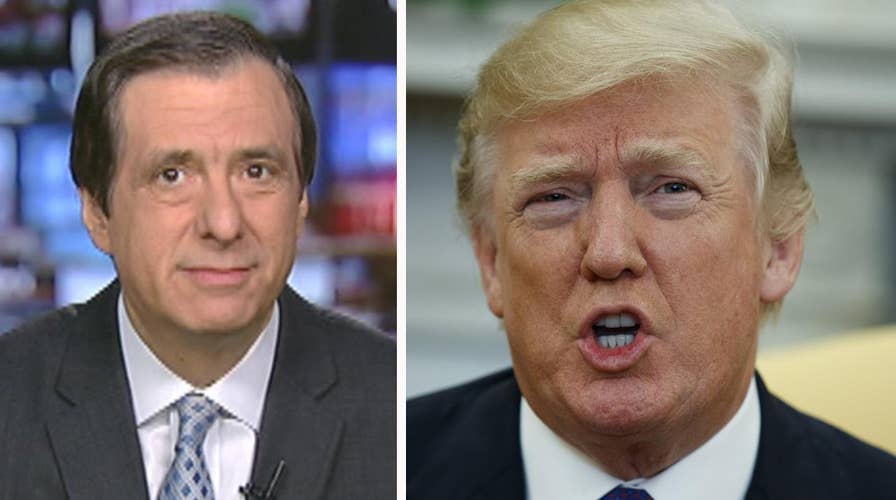Kurtz: Stock market soars, Trump’s numbers don’t
'MediaBuzz' host Howard Kurtz weighs in on the mainstream media neglecting to cover the booming stock market news while opting instead to cover Trump's dwindling poll numbers.
The Dow roared past 26,000 for a time yesterday, and President Trump wants more credit.
I've always said that presidents get more praise than they deserve when the market goes up—the result of millions of business decisions—and more blame than they deserve when it tanks. But you can be sure that if the Dow was down 8,000 points since the election, virtually every story would start by tying it to Trump. (Nobel Prize-winning New York Times columnist Paul Krugman had predicted the day after Trump’s election that the markets would "never" recover.)
And while the bubble could always burst, surely the Trump tax cut has something to do with the latest Wall Street gains—especially the 1,000-point surge in seven trading days.
Trump tweeted yesterday: "Do you notice the Fake News Mainstream Media never likes covering the great and record setting economic news, but rather talks about anything negative or that can be turned into the negative," including the "Russian Collusion Hoax."
Of course, the president sometimes leads the press down the s---hole of negativity with his feuds and attacks, from "Sloppy Steve" to "Dicky Durbin," but it's fair to question whether the market news—and a spate of stories about employers having trouble filling jobs—should be tied more directly to his policies.
The economy turns out to be Trump's strongest suit in a new Politico/Morning Consult poll of the president’s first year in office—the first of what I'm sure will be several media surveys.
The numbers aren't great for Trump—and, not surprisingly, break down along sharply partisan lines.
In report card form, 35 percent of those surveyed give the president an F on his first year, compared with 34 percent who award him an A or B. Another 14 percent choose C and 11 percent pick D.
There's a significant gender gap, with 50 percent of women, compared with 42 percent of men, choosing D or F.
But the real divide in the Politico poll is by party affiliation. Some 72 percent of Republicans give the president an A or B, and just 10 percent opt for D or F.
By contrast, just 8 percent of Democrats go with A or B, while 79 percent give Trump a D or F. (Among independents, 45 percent go with D or F).
Polls can fluctuate, but the reason this matters is that the president hasn't done much to expand his rock-solid base since taking office. We see this question playing out in the current immigration/government shutdown debate.
If Trump signs a compromise measure that includes protection for the dreamers, it will alienate part of that base, as we saw with conservative commentators speaking out against him. But such a deal, even if it included funding for the border wall, would be well received by those who want the president to cooperate with Democrats.
The president's popularity matters to his party in a year in which the House increasingly seems to be up for grabs. So the question of "playing to the base" is a vital one, even as the stock market keeps climbing.













































